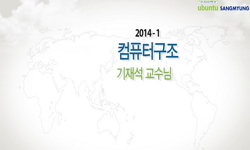Recent interaction research has shown that corrective feedback may benefit L2 learners to varying degrees, and that certain types of feedback may be more beneficial than others, engendering much discussion and research attempts to investigate the issu...
http://chineseinput.net/에서 pinyin(병음)방식으로 중국어를 변환할 수 있습니다.
변환된 중국어를 복사하여 사용하시면 됩니다.
- 中文 을 입력하시려면 zhongwen을 입력하시고 space를누르시면됩니다.
- 北京 을 입력하시려면 beijing을 입력하시고 space를 누르시면 됩니다.

Corrective Feedback and Phonological Short-Term Memory in the Acquisition of the English That-Trace Filter: A Conceptual Replication of Goo, 2012 = Corrective Feedback and Phonological Short-Term Memory in the Acquisition of the English That-Trace Filter: A Conceptual Replication of Goo, 2012
한글로보기https://www.riss.kr/link?id=A99960962
- 저자
- 발행기관
- 학술지명
- 권호사항
-
발행연도
2014
-
작성언어
Korean
- 주제어
-
등재정보
KCI등재
-
자료형태
학술저널
-
수록면
231-257(27쪽)
- 제공처
- 소장기관
-
0
상세조회 -
0
다운로드
부가정보
다국어 초록 (Multilingual Abstract)
Recent interaction research has shown that corrective feedback may benefit L2 learners to varying degrees, and that certain types of feedback may be more beneficial than others, engendering much discussion and research attempts to investigate the issue. Goo`s (2012) study is one of those empirical attempts conducted in this line of research paradigm. The present study, as a conceptual replication of Goo`s original study, explores this on-going area of feedback research, the relative efficacy of different forms of corrective feedback, and whether/how phonological short-term memory (PSTM) mediates the impact of different feedback moves on the acquisition of the English that-trace filter. Twenty-nine adult high-intermediate Korean EFL learners were randomly assigned to one of three groups: a recast, metalinguistic feedback, and comparison groups. The study employed a pretest-posttest design. One intensive treatment session was implemented. Two dependent variable measures were developed/administered to assess learner performance: a timed grammaticality judgment test and a timed oral production test. Overall results showed that metalinguistic feedback was more effective than recasts at facilitating the acquisition of the target construction. PSTM was not found to be correlated with the effectiveness of recasts and metalinguistic feedback. Different patterns of learner performance were also observed depending upon the mode of dependent variable measure.
동일학술지(권/호) 다른 논문
-
- 21세기영어영문학회
- 강용기 ( Yong Ki Kang )
- 2014
- KCI등재
-
아감벤의 “목적 없는 수단”과 벤야민의 이미지로서의 역사철학그리고 드보르 영화의 몽타주 기법
- 21세기영어영문학회
- 윤교찬 ( Kyo Chan Yoon )
- 2014
- KCI등재
-
생태적 회복을 향한 실천으로서의 불복종-소로, 애비, 스나이더의 경우
- 21세기영어영문학회
- 정선영 ( Seon Young Jeong )
- 2014
- KCI등재
-
형식문체소의 번역-제임스 조이스의『젊은 예술가의 초상』을 중심으로
- 21세기영어영문학회
- 김도훈 ( Do Hun Kim )
- 2014
- KCI등재




 eArticle
eArticle KISS
KISS



